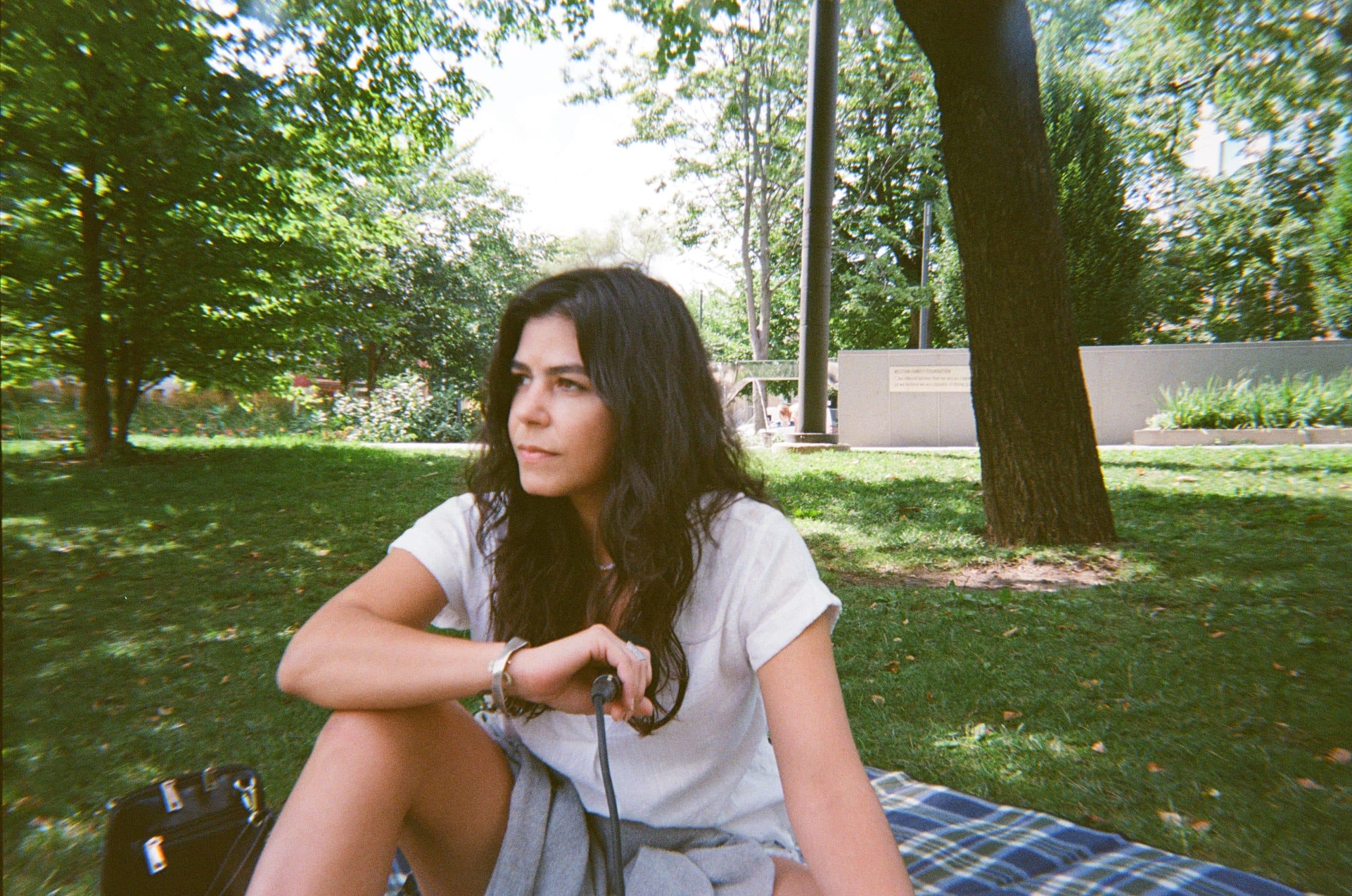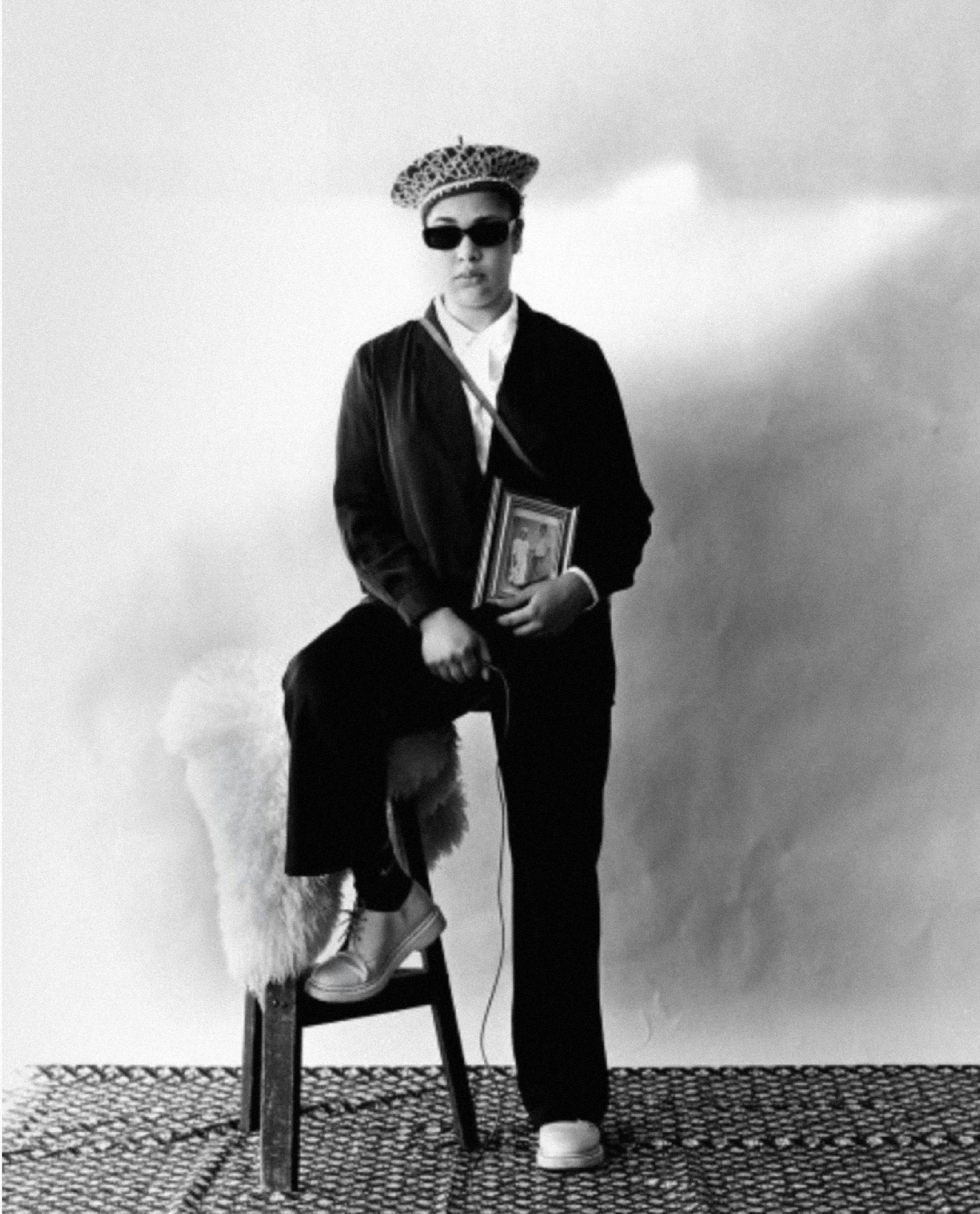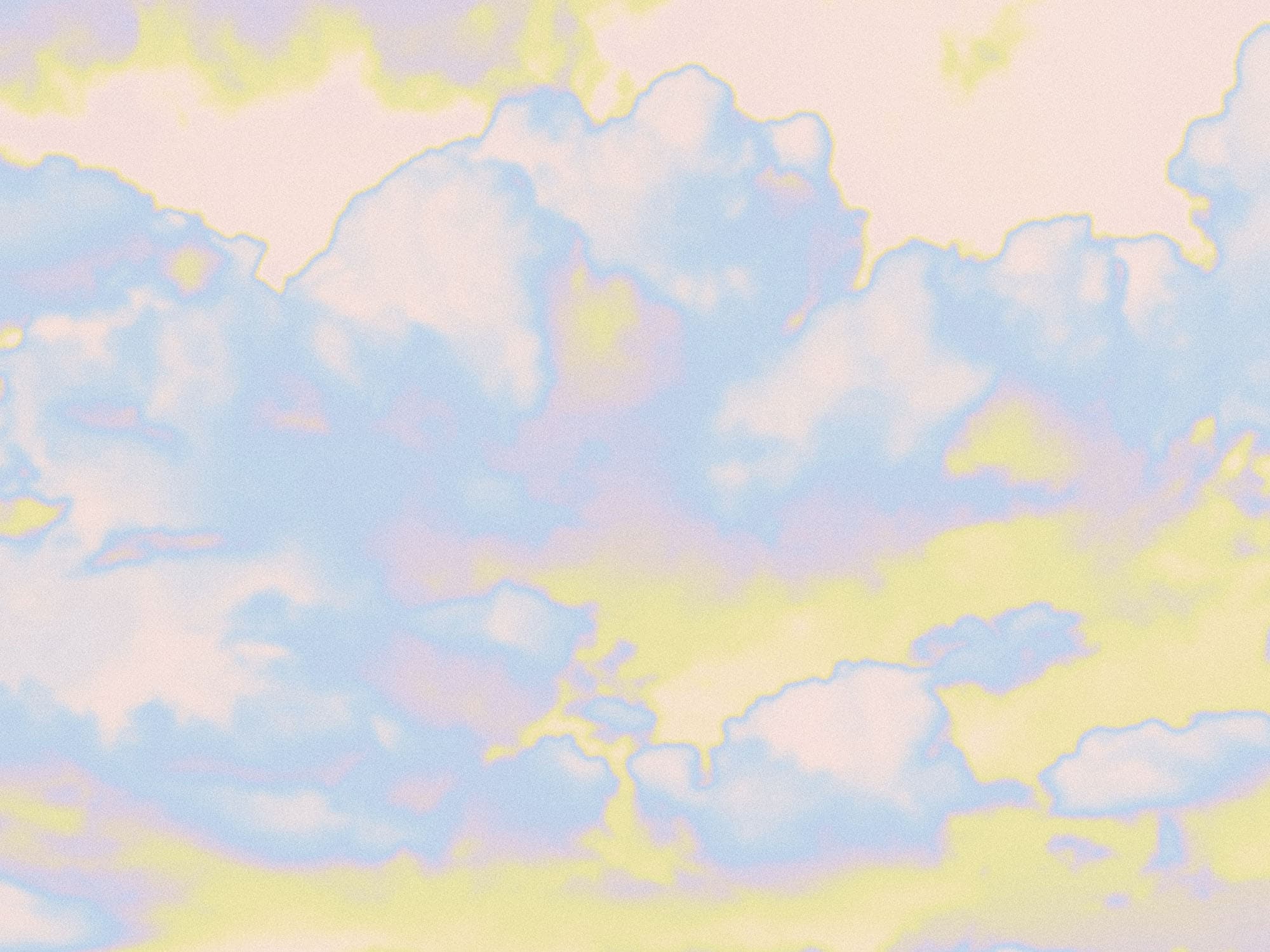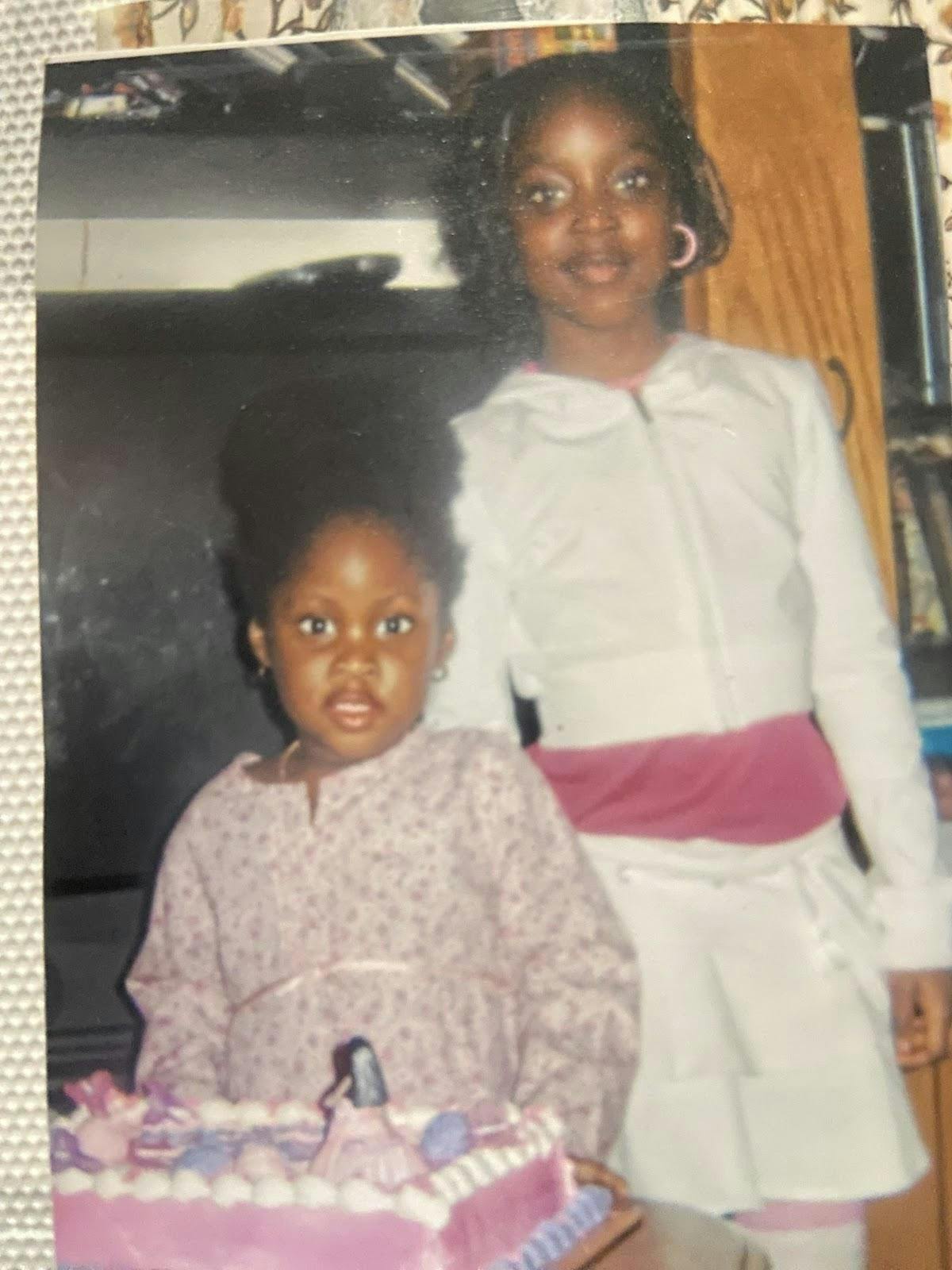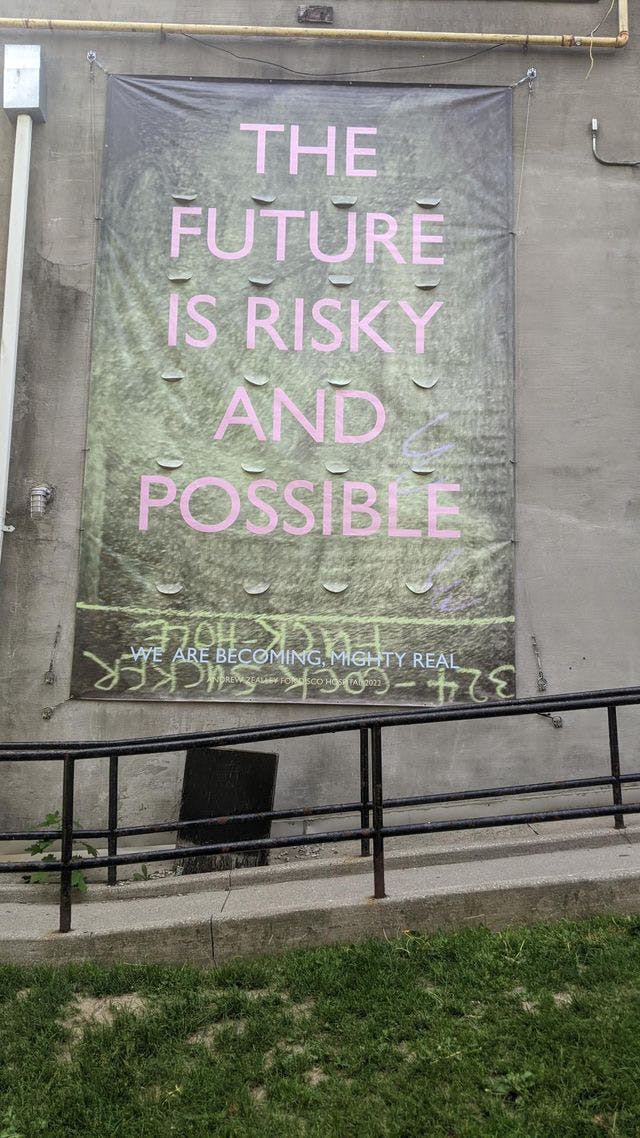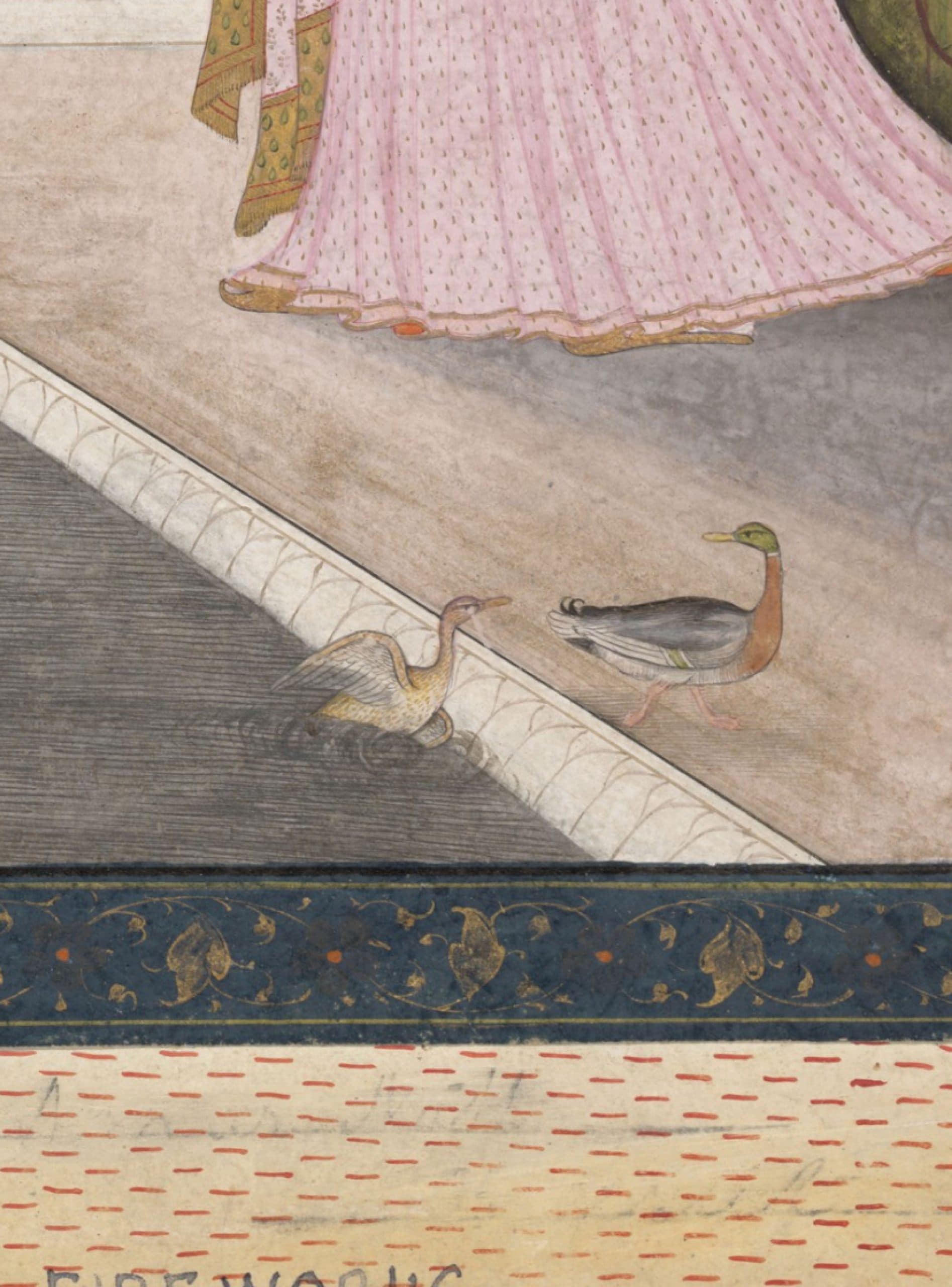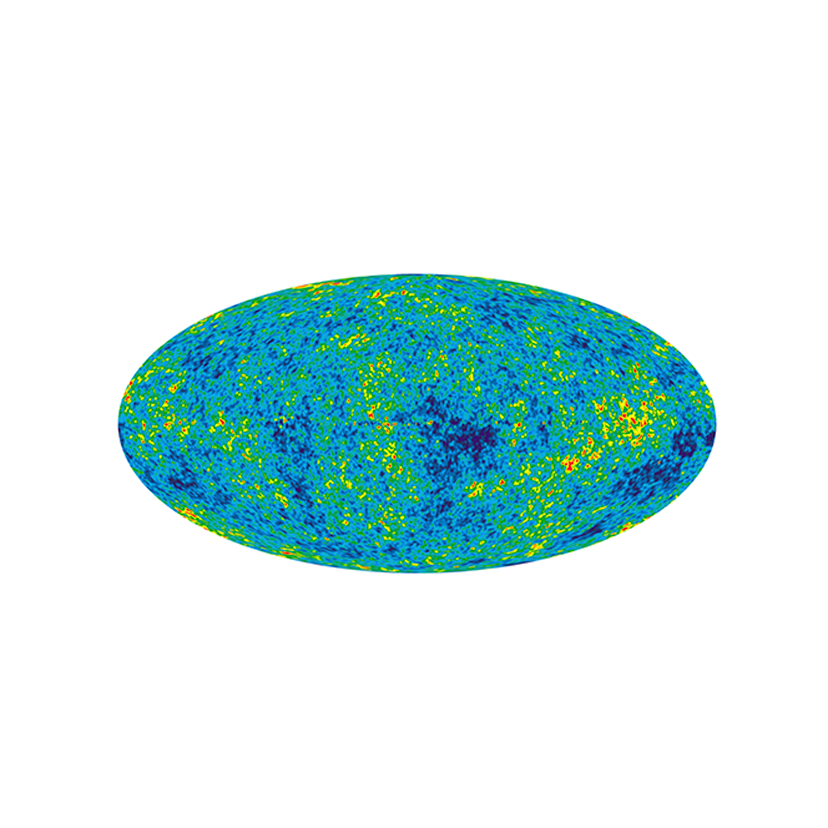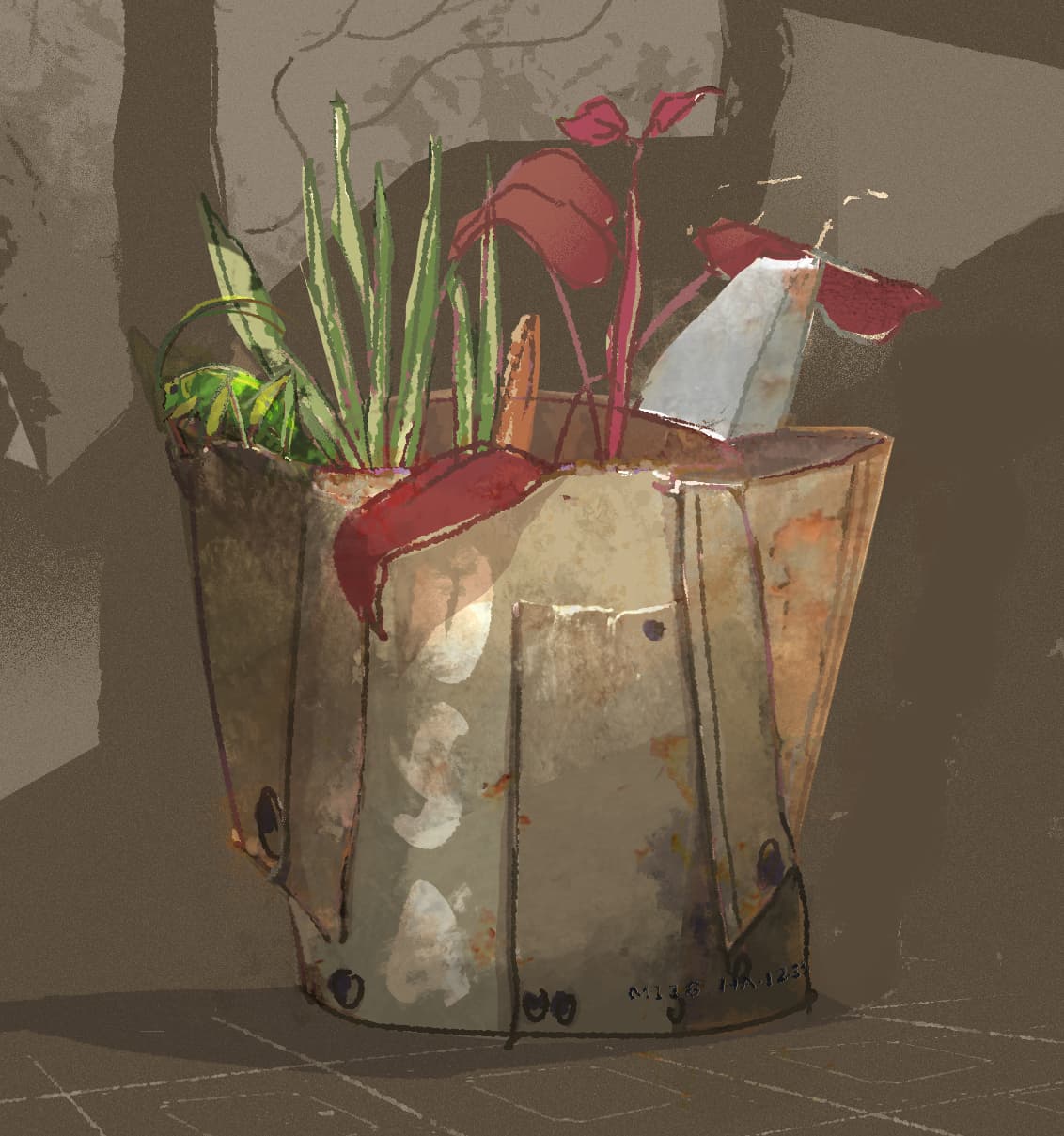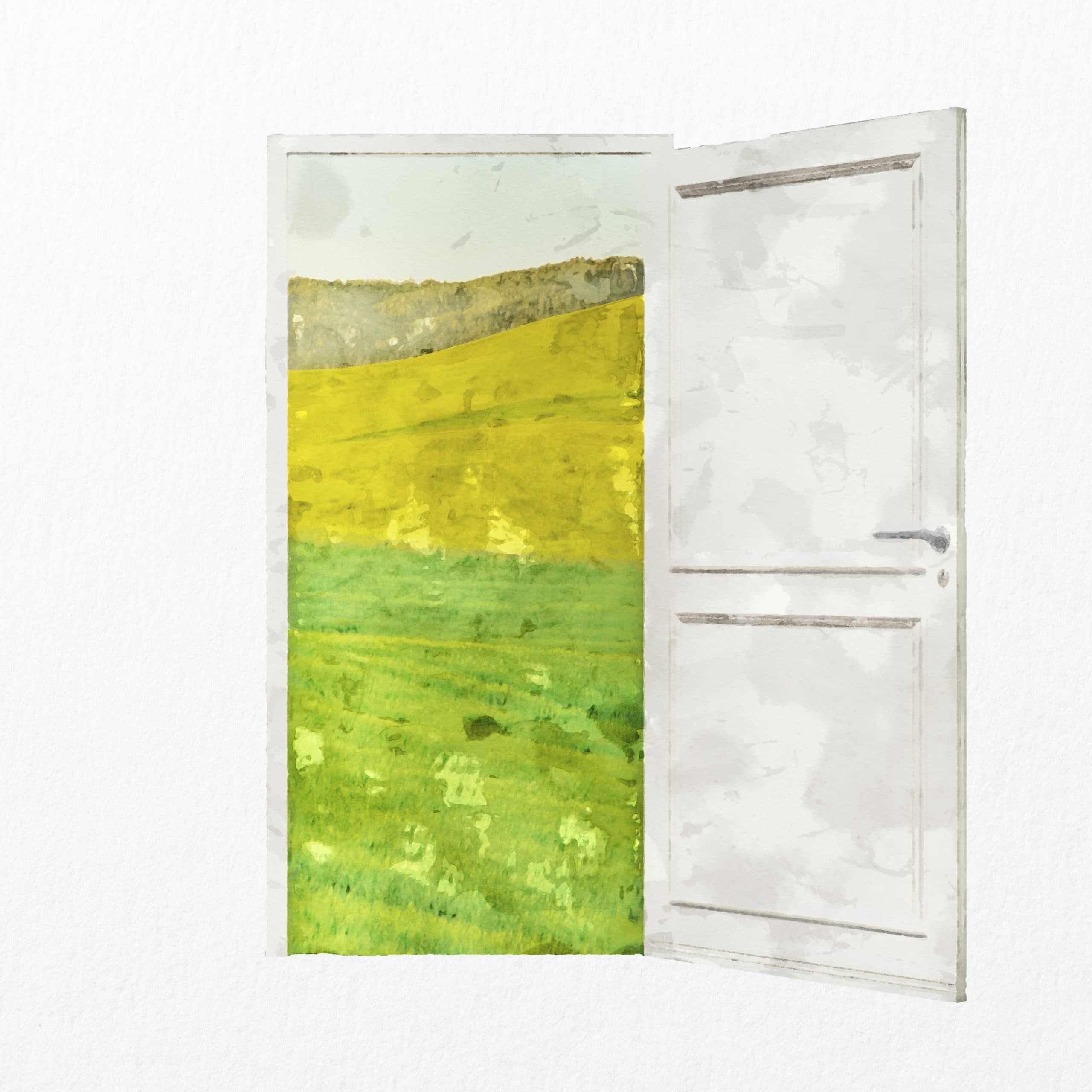Disillusionment as Nyaya
Reflections of ancestral solidarity as we call for a free Palestine
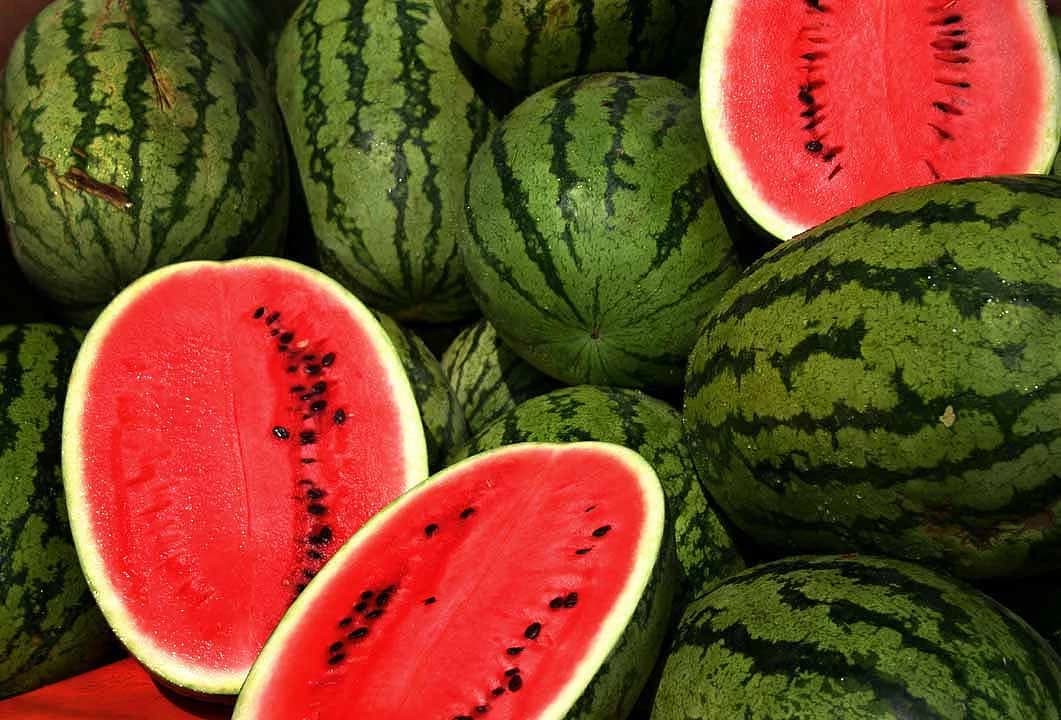
The article references graphic imagery, violence, and death of children.
“Free, free Palestine!” A student union representative chanted. Her words pierced me, sending blood rushing through my whole body.
I joined in unison with the crowd, surrounded by a sea of crimson red, black, white and green. The little boy I had seen earlier that day remained fixed in my mind: confused and wide eyed, with his skull blown off and parts of his brain exposed. I let the rage fill my lungs… I exhaled a prayer for a liberated Palestine.
Observing the horrors of genocide as they have unfolded in real-time over the last several weeks has felt like a nightmare. At the forefront of this has been my yearning to invoke the power of nyāya—the Sanskrit embodiment of guidance, reasoning, and logic—as a praxis for seeking justice and to stand in solidarity with my Palestinian brothers and sisters. As the descendant of a colonized people who have at various times throughout history stood in solidarity with one another, I am informed by these practices.
India has been a desire for conquest and colonization for centuries—holding an enduring fascination that has ensnared the ambitions of many. From the Mughal Empire to European merchants to the brutality of British Colonial rule, we know the struggle of colonization and imperialism intimately. We are also familiar with the resounding impact of solidarity. Hindus and Muslims shared in the same struggle against British colonialism, falling victim to the same “divide and rule” tactics that Israel has been employing against Palestinians over the last 75 years. The unity of Sikhs, Muslims and Hindus in the face of the British Raj posed such an immense threat to Britain’s imperialist project that they redirected their efforts to breaking this solidarity. As Shashi Tharoor states:
“The creation and perpetuation of Hindu-Muslim antagonism was the most significant accomplishment of British imperial policy: the colonial project of “divide et imperia” (divide and rule) fomented religious antagonisms to facilitate continued imperial rule and reached its tragic culmination in 1947.”
This solidarity has transcended time and evolved into new forms: the colonized somehow becomes colonizer.
Hindutva supremacists today leverage the oppression faced by Hindus at the hands of Islamic imperialists during the Mughal empire to rationalize the ongoing genocide of Muslims in India. This Zionist-like justification is why we see Modi’s India—one that is active in its own illegal occupation of Kashmir—united with Israel. India’s ties with the United States and Israel is a calculated alliance built to reinforce white supremacist adjacent attitudes amongst Indians and bolster support for its own ethnic cleansing.
After all, one colonizing power cannot exist without the unconditional permission, reinforcement and sanctioning of another or all others. In the face of Hindutva Supremacist attitudes and Hindu Nationalism, Muslims and Sikhs have borne the pain of disenfranchisement, dispossession and displacement. In response to Hindutva supremacist policies such as the National Register of Citizens, Sikh and Muslim Indians have had to band together, switching family names in an attempt to disrupt the registry.
I reflect on these powerful acts of solidarity as Palestinians call on the world to speak out and act; as they are forced to showcase their suffering, through children screaming out for their parents; as mothers, fathers and grandparents hold the bodies of their loved ones kissing them one last goodbye.
The haunting image of Khalid Nabhan cradling his 3-year old granddaughter, Reem, while he kisses her face honoring her as “soul of my soul,” lingers vividly in my thoughts.
I remind myself, as many have said before me, that by witnessing these realities we are not freeing Palestine, Palestine is freeing us. It is teaching us how to deeply reflect on our own nuances, our own positions of power and privilege and the true meaning of our positionality in dismantling these oppressive systems.
Those of us who have been paying attention prior to October 7 know that these events are the culmination of 75 years of occupation—a gradual and consistent attempt at erasing Palestinian existence since the first Nakba in 1948. My own ancestors who have endured the deleterious effects of colonization and indentured slavery serve as reminders to me of the cruelty of settler colonial occupation. Much like the “divide and rule” tactics used during the British Raj, Israel has employed the same strategies to reinforce and solidify its occupation of Palestine. One of the many ways they have done this is through its role in the emergence of Hamas. Israeli authorities used these tactics when destabilizing the Palestinian Authority and creating a divide amongst Palestinian resistance.
One of the most brutalizing ways that Israel has sought to divide and rule Palestinians is through the architecture of the apartheid state itself. Eyal Weizman, in his book Hollow Land: Israel’s Architecture of Occupation discusses the concept of “Stratigraphic Separation,” the tactful division of three main districts, namely Gaza, Jerusalem and the West Bank to fortify its occupation. He describes Israel’s colonial project as being arranged in layers, reinforced through its use and control of the surface, subsoil and airspace.
These tactics employed by Israel are textbook settler colonial practices, as we have seen throughout various occupations in history. This includes the occupation of the Mississaugas of the Credit, the Anishnabeg, the Chippewa, the Haudenosaunee and the Wendat peoples, upon whose lands I reside, when they were “claimed” as Canada—a colonial entity which abstained from the UN vote calling for an immediate and sustained humanitarian truce.
Israel’s strategic propaganda aimed at convoluting the realities of Palestinians and their humanity has infiltrated western media, which has been wrought with its own racist and orientalist notions of the Arab world. Upholding Israel’s lies, deception, and misinformation, affirms myths that parallel the west’s own colonial beginnings.
In a continued effort to refer to Indigenous people as extinct, news outlets report Palestinians as “dead” and Israelis as “killed”. By negating Palestinian experiences and loss of life, the west is, as Noam Chomksy calls it, manufacturing consent” for their slaughter, erasing the memory of an entire people through villainization and dehumanization—using polarizing language as a weapon. Ethnic cleansing, genocide, apartheid and settler colonialism are terms that have been used by various scholars, academics and human rights organizations to describe the situation in Palestine. All interconnected and interdependent, these systems of control and occupation have all been at play at some point or another over the last 75 years. Western media outlets cannot however resist the temptation to refer to this as a “war” or “conflict”. The use of such language is intentional and a clear attempt to distract from the disproportionate targeting and killing of indigenous Palestinians by an occupier state. It assumes equal footing on both sides whilst ignoring the clear disparity in power, resources, and capabilities. The outcome of which is to desensitize the world from the mass numbers of Palestinians, the majority of which are children, being murdered.
So why then, when notable human rights organizations, international law, and the United Nations are telling us that this is genocide, apartheid, or colonialism, are our governments, leaders and people in power trying to convince us otherwise? Why is even the tamest position of a ceasefire still so controversial? Because the very essence of these findings poses a threat to colonial enterprises. Because the existence of these imperialist entities in the west have only been possible through the raping, pillaging, massacring, and enslavement of Indigenous people forcibly removed from their homelands.
Our voices as non-Arabs, as non-Palestinians and as descendants of a colonized people are being called on. As Canada invests in arms manufacturing that is eventually sold to Israel, our efforts to amplify Palestinian voices through visibility, divestment and protesting becomes crucial.
At the forefront of this work is an inherent deprogramming from these systems of oppression. From Hindutva supremacy to U.S. patriotism to Canada’s myth of western democracy to British imperialism, it is deprogramming, or what Gabor Maté calls “disillusionment,” that is a necessary part of becoming critical of our governments, belief systems, political ideologies, and their universal impact. We must be disillusioned to embody the true meaning of nyāya.
In the words of Layla F. Saad, as Palestinians in Palestine and around the world continue to be censored, harmed, punished, and even killed for speaking out, the rest of the world is called upon to uplift our voices and protect them. After all, there is no collective liberation in the absence of a free Palestine.
